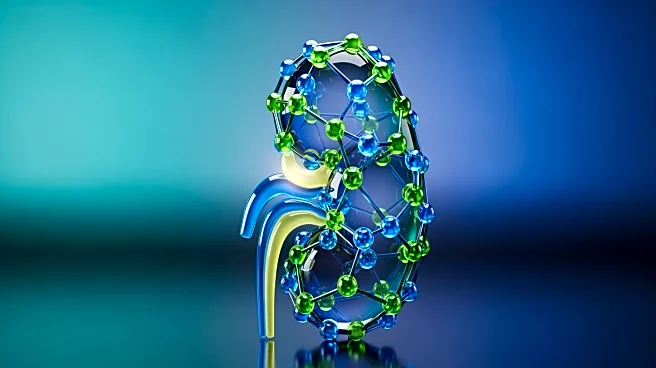What is the story about?
What's Happening?
Recent research has demonstrated that Dichloroacetate (DCA) can enhance the chemo-sensitivity of wild-type P53 breast cancer cells by modulating the expression of ABCG2 and NKG2DL. The study focused on MCF7 breast cancer cell lines, showing that co-treatment with DCA and Doxorubicin (Dox) reduces cell viability, indicating a synergistic effect. DCA's ability to reverse the Warburg effect and increase tumor cell vulnerability to apoptosis is highlighted. The research also noted varying impacts on different breast cancer cell lines, suggesting a dependency on P53 status. The study suggests that DCA could be a promising first-line treatment for patients with wild-type P53-positive breast cancer, enhancing sensitivity to chemotherapy by downregulating ABCG2 expression.
Why It's Important?
This research is significant as it offers a potential new approach to treating breast cancer, particularly in cases where tumors exhibit resistance to conventional therapies. By enhancing the effectiveness of chemotherapy drugs like Doxorubicin, DCA could improve treatment outcomes for patients with wild-type P53 breast cancer. The study's findings could lead to more personalized cancer treatment strategies, focusing on genetic markers like P53 status to optimize therapy. This could potentially reduce the incidence of drug resistance and improve survival rates among breast cancer patients.
What's Next?
Further research is needed to confirm these findings in animal models and patient primary cells before clinical trials can be initiated. Understanding the precise mechanisms by which DCA affects ABCG2 and NKG2DL expression will be crucial for developing effective treatment protocols. Additionally, exploring the potential of DCA in combination with other chemotherapeutic agents could expand its applicability across different cancer types.
Beyond the Headlines
The study raises important questions about the role of genetic markers in cancer treatment and the potential for metabolic therapies to enhance chemotherapy effectiveness. It also highlights the need for a deeper understanding of the molecular pathways involved in drug resistance and tumor progression.
















